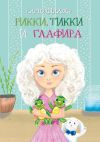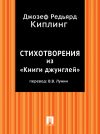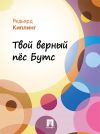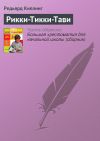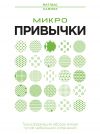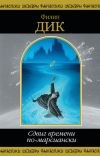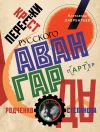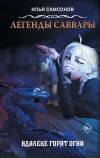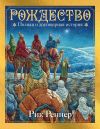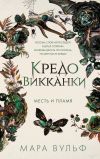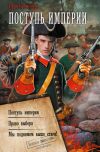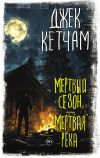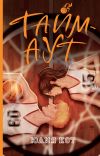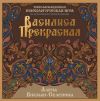Текст книги "Английский с Редьярдом Киплингом. Рикки-Тикки-Тави / Rudyard Kipling. Rikki-Tikki-Tavi"

Автор книги: Редьярд Киплинг
Жанр: Иностранные языки, Наука и Образование
Возрастные ограничения: +12
сообщить о неприемлемом содержимом
Текущая страница: 3 (всего у книги 10 страниц) [доступный отрывок для чтения: 3 страниц]
“I didn’t (я не говорил /с ней/) – so you must tell me (поэтому ты должна сказать мне). Quick, Chuchundra (быстрее, Чучундра), or I’ll bite you (а то я укушу тебя)!”
Chuchundra sat down and cried till the tears rolled off his whiskers (Чучундра села и заплакала, пока слезы не покатились по ее усам). “I am a very poor man (я очень бедная = несчастная; man – человек, мужчина),” he sobbed (всхлипывала она; to sob – рыдать; всхлипывать). “I never had spirit enough to run out into the middle of the room (у меня никогда не хватало духу выбежать на середину комнаты; spirit – дух, душа; характер). H’sh (тсс)! I mustn’t tell you anything (я не должна ничего тебе говорить). Can’t you hear, Rikki-tikki (разве ты не слышишь, Рикки-Тикки)?”

“My cousin Chua, the rat, told me – ” said Chuchundra, and then he stopped.
“Told you what?”
“H’sh! Nag is everywhere, Rikki-tikki. You should have talked to Chua in the garden.”
“I didn’t – so you must tell me. Quick, Chuchundra, or I’ll bite you!”
Chuchundra sat down and cried till the tears rolled off his whiskers. “I am a very poor man,” he sobbed. “I never had spirit enough to run out into the middle of the room. H’sh! I mustn’t tell you anything. Can’t you hear, Rikki-tikki?”
Rikki-tikki listened (Рикки-Тикки прислушался; to listen – слушать; прислушиваться). The house was as still as still (в доме было тихо-тихо), but he thought he could just catch the faintest scratch-scratch in the world (однако он подумал = ему показалось, что он может уловить самый слабый на свете «скрип-скрип»; to catch – ловить, поймать; faint – ослабевший, вялый; незначительный, слабый, едва различимый; scratch – царапина; царапанье, скрип) – a noise as faint as that of a wasp walking on a window-pane (шум = звук, такой же едва различимый, как и /звук лап/ осы, идущей = ползущей по оконному стеклу) – the dry scratch of a snake’s scales on brick-work (сухой скрип змеиной чешуи по кирпичному сооружению = уложенным кирпичам; work – работа; сооружение).
“That’s Nag or Nagaina (это Наг или Нагайна),” he said to himself (сказал он себе = подумал он), “and he is crawling into the bath-room sluice (и /змея/ ползет в сточный желоб ванной комнаты; to crawl – ползать; sluice – шлюз; сточный желоб). You’re right, Chuchundra (ты права, Чучундра); I should have talked to Chua (мне следовало поговорить с Чуа).”

Rikki-tikki listened. The house was as still as still, but he thought he could just catch the faintest scratch-scratch in the world – a noise as faint as that of a wasp walking on a window-pane – the dry scratch of a snake’s scales on brick-work.
“That’s Nag or Nagaina,” he said to himself, “and he is crawling into the bath-room sluice. You’re right, Chuchundra; I should have talked to Chua.”
He stole off to Teddy’s bath-room (он прокрался в ванную комнату Тэдди; to steal – воровать, красть; красться), but there was nothing there (но там ничего не было), and then to Teddy’s mother’s bathroom (потом в ванную комнату матери Тэдди). At the bottom of the smooth plaster wall there was a brick pulled out to make a sluice for the bath water (/здесь/ у основания гладкой оштукатуренной стены был вынут кирпич, чтобы сделать шлюз = для стока воды из ванной; plaster – штукатурка; to pull – тянуть, тащить), and as Rikki-tikki stole in by the masonry curb where the bath is put (и когда Рикки-Тикки крался мимо каменного бордюра, где располагалась ванна; to steal; masonry – каменная кладка; curb – зд.: бордюрный камень), he heard Nag and Nagaina whispering together outside in the moonlight (он услышал, как Наг и Нагайна шепчутся снаружи при свете луны; to whisper – шептать/ся/).

He stole off to Teddy’s bath-room, but there was nothing there, and then to Teddy’s mother’s bathroom. At the bottom of the smooth plaster wall there was a brick pulled out to make a sluice for the bath water, and as Rikki-tikki stole in by the masonry curb where the bath is put, he heard Nag and Nagaina whispering together outside in the moonlight.
“When the house is emptied of people (когда дом опустеет от людей = в доме не будет людей; to empty – опорожнять; освобождать /помещение – от мебели, людей/, пустеть; empty – пустой),” said Nagaina to her husband (сказала Нагайна своему мужу), “he will have to go away (ему придется уйти), and then the garden will be our own again (и тогда сад будет снова наш; own – свой, собственный). Go in quietly (войди = вползи тихо), and remember that the big man who killed Karait is the first one to bite (и помни, что большого человека, который убил Карайта, нужно укусить первым). Then come out and tell me (потом вернись, расскажи мне /все/), and we will hunt for Rikki-tikki together (и мы вместе будем охотиться на Рикки-Тикки).”
“But are you sure that there is anything to be gained by killing the people (а ты уверена, что можно добиться чего-нибудь, убив людей; to gain – добывать, зарабатывать; добиваться, выгадывать)?” said Nag.

“When the house is emptied of people,” said Nagaina to her husband, “he will have to go away, and then the garden will be our own again. Go in quietly, and remember that the big man who killed Karait is the first one to bite. Then come out and tell me, and we will hunt for Rikki-tikki together.”
“But are you sure that there is anything to be gained by killing the people?” said Nag.
“Everything (всего). When there were no people in the bungalow (когда в бунгало не было людей), did we have any mongoose in the garden (разве у нас в саду был хоть один мангуст)? So long as the bungalow is empty (пока бунгало пуст), we are king and queen of the garden (мы – король и королева в саду); and remember that as soon as our eggs in the melon bed hatch (и помни, как только на грядке с дынями лопнут наши яйца; bed – кровать, ложе; грядка; to hatch – насиживать /яйца/; вылупляться из яйца) (as they may tomorrow (а они могут /лопнуть/ и завтра)), our children will need room and quiet (нашим детям будет нужен простор и покой; to need – нуждаться; room – комната; возможности, простор; quiet – тишина; покой).”
“I had not thought of that (я не подумал об этом),” said Nag. “I will go (я пойду), but there is no need that we should hunt for Rikki-tikki afterward (но нам незачем будет охотиться на Рикки-Тикки потом; need – нуждаться). I will kill the big man and his wife (я убью большого человека и его жену), and the child if I can (а также ребенка, если смогу), and come away quietly (и тихо уйду). Then the bungalow will be empty (тогда бунгало будет пустым = опустеет), and Rikki-tikki will go (и Рикки-Тикки уйдет /сам/).”

“Everything. When there were no people in the bungalow, did we have any mongoose in the garden? So long as the bungalow is empty, we are king and queen of the garden; and remember that as soon as our eggs in the melon bed hatch (as they may tomorrow), our children will need room and quiet.”
“I had not thought of that,” said Nag. “I will go, but there is no need that we should hunt for Rikki-tikki afterward. I will kill the big man and his wife, and the child if I can, and come away quietly. Then the bungalow will be empty, and Rikki-tikki will go.”
Rikki-tikki tingled all over with rage and hatred at this (Рикки-Тикки весь задрожал от ярости и ненависти при этом = услышав это; to tingle – ощущать звон, шум /в ушах/; дрожать, трепетать; all over – всюду, повсюду), and then Nag’s head came through the sluice (но тут голова Нага показалась из желоба; through – через, сквозь, по, внутри), and his five feet of cold body followed it (и вслед за ней пять футов его холодного тела; to follow – следовать, идти за). Angry as he was (как ни был он рассержен), Rikki-tikki was very frightened as he saw the size of the big cobra (Рикки-Тикки был очень испуган, когда увидел размер огромной кобры; to frighten – пугать, испугать). Nag coiled himself up (Наг свернулся кольцом; to coil – свертываться кольцом, извиваться), raised his head (поднял свою голову), and looked into the bathroom in the dark (посмотрел в темноту ванной комнаты), and Rikki could see his eyes glitter (и Рикки мог видеть, как блестят его глаза; to glitter – блестеть, сверкать).
“Now, if I kill him here (если я стану убивать его здесь), Nagaina will know (Нагайна узнает); and if I fight him on the open floor (/кроме того/, если я буду драться с ним на открытом полу), the odds are in his favor (перевес будет на его стороне; odds – неравенство; перевес /в пользу чего-либо/; favor – расположение, благосклонность; in smb’s favor – в чью-либо пользу). What am I to do (что же мне делать)?” said Rikki-tikki-tavi.

Rikki-tikki tingled all over with rage and hatred at this, and then Nag’s head came through the sluice, and his five feet of cold body followed it. Angry as he was, Rikki-tikki was very frightened as he saw the size of the big cobra. Nag coiled himself up, raised his head, and looked into the bathroom in the dark, and Rikki could see his eyes glitter.
“Now, if I kill him here, Nagaina will know; and if I fight him on the open floor, the odds are in his favor. What am I to do?” said Rikki-tikki-tavi.
Nag waved to and fro (Наг извивался в разные стороны; to wave – вызывать или совершать волнообразные движения; виться, извиваться), and then Rikki-tikki heard him drinking from the biggest water-jar that was used to fill the bath (и затем Рикки-Тикки услышал, как он пьет из самого большого кувшина для воды, который обычно использовался, чтобы наполнять ванну; to use – использовать; to fill – наполнять). “That is good (хорошо),” said the snake (сказала змея). “Now, when Karait was killed (теперь, когда Карайт убит), the big man had a stick (/ясно, что/ у большого человека есть палка). He may have that stick still (может быть, эта палка все еще у него), but when he comes in to bathe in the morning he will not have a stick (но когда он войдет утром, чтобы искупаться, у него не будет палки; to bathe – купать/ся/). I shall wait here till he comes (я буду ждать здесь, пока он не придет). Nagaina – do you hear me (Нагайна, ты слышишь меня)? – I shall wait here in the cool till daytime (я подожду здесь, в холодке, до дневного времени = до утра).”

Nag waved to and fro, and then Rikki-tikki heard him drinking from the biggest water-jar that was used to fill the bath. “That is good,” said the snake. “Now, when Karait was killed, the big man had a stick. He may have that stick still, but when he comes in to bathe in the morning he will not have a stick. I shall wait here till he comes. Nagaina – do you hear me? – I shall wait here in the cool till daytime.”
There was no answer from outside (ответа снаружи не было), so Rikki-tikki knew Nagaina had gone away (и Рикки-Тикки понял, что Нагайна ушла; to know – знать; понимать). Nag coiled himself down, coil by coil, round the bulge at the bottom of the water jar (Наг свернулся, кольцо за кольцом, вокруг выпуклости на дне кувшина; to coil – свертываться кольцом), and Rikki-tikki stayed still as death (а Рикки-Тикки ждал тихо, как смерть; to stay – останавливаться, делать паузу; медлить, ждать). After an hour he began to move (через час он начал двигаться), muscle by muscle (/напрягая/ одну мышцу за другой), toward the jar (по направлению к кувшину). Nag was asleep (Наг спал), and Rikki-tikki looked at his big back (и Рикки смотрел на его большую спину), wondering which would be the best place for a good hold (размышляя, какое место будет лучшим для хорошего = крепкого захвата; to wonder – удивляться; размышлять, сомневаться; hold – захват, сжатие). “If I don’t break his back at the first jump (если я не сломаю ему спину при первом прыжке),” said Rikki, “he can still fight (он все еще сможет драться). And if he fights (а если он будет драться) – O Rikki (о Рикки)!” He looked at the thickness of the neck below the hood (он посмотрел = измерил взглядом толщину /змеиной/ шеи ниже капюшона; thick – толстый), but that was too much for him (но она была слишком велика для него); and a bite near the tail would only make Nag savage (а укус около хвоста только привел бы Нага в бешенство; savage – дикий; взбешенный, разгневанный).

There was no answer from outside, so Rikki-tikki knew Nagaina had gone away. Nag coiled himself down, coil by coil, round the bulge at the bottom of the water jar, and Rikki-tikki stayed still as death. After an hour he began to move, muscle by muscle, toward the jar. Nag was asleep, and Rikki-tikki looked at his big back, wondering which would be the best place for a good hold. “If I don’t break his back at the first jump,” said Rikki, “he can still fight. And if he fights – O Rikki!” He looked at the thickness of the neck below the hood, but that was too much for him; and a bite near the tail would only make Nag savage.
“It must be the head (это должна быть голова),” he said at last (сказал он наконец); “the head above the hood (голова выше капюшона). And, when I am once there, I must not let go (и я не должен дать ему возможность уйти после первого укуса: «и, когда я буду однажды там, я не должен дать уйти»; to let – выпускать; давать возможность).”
Then he jumped (затем он прыгнул). The head was lying a little clear of the water jar (голова /змеи/ лежала, немного выдаваясь из кувшина для воды; to lie – лежать; clear – светлый, ясный; свободный, беспрепятственный), under the curve of it (под его закруглением; curve – кривая /линия/, дуга; закругление, загиб); and, as his teeth met (и когда его зубы встретили /ее/ = сомкнулись), Rikki braced his back against the bulge of the red earthenware to hold down the head (Рикки уперся спиной в выпуклость красного глиняного /кувшина/, чтобы удержать голову змеи внизу; to brace – охватывать, окружать; подпирать, подкреплять; earthenware – глиняная посуда, гончарные изделия). This gave him just one second’s purchase (это дало ему секунду преимущества; purchase – покупка; выигрыш в силе, преимущество), and he made the most of it (и он максимально воспользовался этим: «и он сделал бóльшую часть этого»). Then he was battered to and fro as a rat is shaken by a dog (затем его стало колотить из стороны в сторону, как собака трясет крысу; to batter – сильно бить, колотить; to shake – трясти) – to and fro on the floor (/таскать/ взад и вперед по полу), up and down (/кидать/ вверх и вниз), and around in great circles (и /размахивать/ им, /описывая/ огромные круги), but his eyes were red and he held on (но глаза его были красными = горели красным огнем, и он продолжал держаться), as the body cart-whipped over the floor (когда его тело шлепало по полу; cart – повозка, подвода, телега; to whip – сечь, хлестать, шлепать), upsetting the tin dipper and the soap dish and the flesh brush (опрокидывая и жестяной ковш, и мыльницу, и щетку для тела; to upset – опрокидывать, переворачивать; tin – оловянный; жестяной; soap – мыло; dish – миска, плошка; flesh – плоть), and banged against the tin side of the bath (/потом он/ ударился о жестяную стенку ванны; to bang – ударить/ся/, стукнуть/ся/).

“It must be the head,” he said at last; “the head above the hood. And, when I am once there, I must not let go.”
Then he jumped. The head was lying a little clear of the water jar, under the curve of it; and, as his teeth met, Rikki braced his back against the bulge of the red earthenware to hold down the head. This gave him just one second’s purchase, and he made the most of it. Then he was battered to and fro as a rat is shaken by a dog – to and fro on the floor, up and down, and around in great circles, but his eyes were red and he held on as the body cart-whipped over the floor, upsetting the tin dipper and the soap dish and the flesh brush, and banged against the tin side of the bath.
As he held he closed his jaws tighter and tighter (держась, он крепче и крепче закрывал = сжимал свои челюсти; tight – тугой, туго натянутый; сжатый; стиснутый), for he made sure he would be banged to death (так как был уверен, что разобьется насмерть; to bang – ударить/ся/, стукнуть/ся/), and, for the honor of his family (и ради чести своей семьи), he preferred to be found with his teeth locked (он предпочитал, чтобы его нашли с сомкнутыми зубами; to lock – запирать на замок; сжимать, стискивать, смыкать). He was dizzy (голова у него кружилась; dizzy – чувствующий головокружение), aching (/все/ болело; to ache – болеть, испытывать боль), and felt shaken to pieces when something went off like a thunderclap just behind him (он почувствовал себя разлетевшимся на куски, когда позади него что-то выстрелило, как удар грома; to shake – трясти/сь/; распадаться, расшатываться; to go off – выстреливать /об оружии/; clap – хлопок; удар). A hot wind knocked him senseless (горячий воздух так ударил его, что он лишился чувств; wind – ветер, воздушный поток; to knock – ударять, бить, колотить; sense – чувство, ощущение; senseless – бесчувственный; без сознания), and red fire singed his fur (и красный огонь опалил его мех; to singe – опалять/ся/). The big man had been wakened by the noise (шум разбудил большого человека; to waken – пробуждать/ся/), and had fired both barrels of a shotgun into Nag just behind the hood (и /он/ выстрелил из обоих стволов своего ружья в Нага прямо под капюшон; to fire – зажигать, поджигать; стрелять, выстреливать; barrel – бочка; ствол, дуло /оружия/).

As he held he closed his jaws tighter and tighter, for he made sure he would be banged to death, and, for the honor of his family, he preferred to be found with his teeth locked. He was dizzy, aching, and felt shaken to pieces when something went off like a thunderclap just behind him. A hot wind knocked him senseless and red fire singed his fur. The big man had been wakened by the noise, and had fired both barrels of a shotgun into Nag just behind the hood.
Rikki-tikki held on with his eyes shut (Рикки-Тикки все еще не открывал глаз; to hold on – продолжать делать что-либо, упорствовать в чем-либо; to shut – закрывать), for now he was quite sure he was dead (так как теперь он был вполне уверен, что он мертв; sure – уверенный; dead – мертвый). But the head did not move (но /змеиная/ голова не двигалась), and the big man picked him up and said (и большой человек поднял его и сказал; to pick up – поднимать, подбирать), “It’s the mongoose again, Alice (это опять мангуст, Элис). The little chap has saved our lives now (малыш спас теперь наши жизни; chap – парень).”
Then Teddy’s mother came in with a very white face (мать Тэдди вошла с совершенно белым лицом), and saw what was left of Nag (и увидела то, что осталось от Нага), and Rikki-tikki dragged himself to Teddy’s bedroom (а Рикки-Тикки поплелся в спальню Тэдди; to drag – тянуть, тащить; тащиться, медленно двигаться) and spent half the rest of the night shaking himself tenderly to find out whether he really was broken into forty pieces (и провел остаток ночи, осторожно встряхивая себя, чтобы узнать, действительно ли он был разломан на сорок кусков; to spend – тратить, расходовать; проводить /о времени/; tenderly – нежно, мягко /о прикосновении, обращении/; to find out – выяснять, узнавать), as he fancied (как ему казалось; to fancy – воображать, представлять себе; считать, предполагать).

Rikki-tikki held on with his eyes shut, for now he was quite sure he was dead. But the head did not move, and the big man picked him up and said, “It’s the mongoose again, Alice. The little chap has saved our lives now.”
Then Teddy’s mother came in with a very white face, and saw what was left of Nag, and Rikki-tikki dragged himself to Teddy’s bedroom and spent half the rest of the night shaking himself tenderly to find out whether he really was broken into forty pieces, as he fancied.
When morning came he was very stiff (когда настало утро, он был совершенно одеревенелый; stiff – тугой, негибкий, жесткий; окостеневший, одеревенелый), but well pleased with his doings (но очень довольный своими поступками; to please – радовать, доставлять удовольствие; pleased – довольный). “Now I have Nagaina to settle with (теперь я должен разделаться с Нагайной; to settle – поселить/ся/; уладить; разделаться, прикончить), and she will be worse than five Nags (а она будет хуже = опаснее пяти Нагов), and there’s no knowing when the eggs she spoke of will hatch (и никто не знает, когда яйца, о которых она говорила, лопнут; to speak; to hatch – насиживать /яйца/; вылупляться из яйца). Goodness (Господи; goodness – доброта; великодушие; My goodness! – Боже мой!)! I must go and see Darzee (я должен пойти и увидеть Дарзи),” he said.
Without waiting for breakfast (не дожидаясь завтрака; without – без; to wait – ждать), Rikki-tikki ran to the thornbush where Darzee was singing a song of triumph at the top of his voice (Рикки-Тикки побежал к терновому кусту, где Дарзи на вершине своего голоса = во весь голос распевал торжествующую песню; to run; triumph – триумф; победа, торжество; top – верхушка, вершина; наивысший, максимальный). The news of Nag’s death was all over the garden (известие о смерти Нага было = разошлось по всему саду), for the sweeper had thrown the body on the rubbish-heap (потому что уборщик выбросил его тело на кучу мусора; to sweep – мести, подметать; sweeper – /разг./ чистильщик; to throw – бросать, кидать).

When morning came he was very stiff, but well pleased with his doings. “Now I have Nagaina to settle with, and she will be worse than five Nags, and there’s no knowing when the eggs she spoke of will hatch. Goodness! I must go and see Darzee,” he said.
Without waiting for breakfast, Rikki-tikki ran to the thornbush where Darzee was singing a song of triumph at the top of his voice. The news of Nag’s death was all over the garden, for the sweeper had thrown the body on the rubbish-heap.
“Oh, you stupid tuft of feathers (ох ты, глупый пучок перьев)!” said Rikki-tikki angrily (сказал Рикки-Тикки сердито). “Is this the time to sing (разве сейчас время петь)?”
“Nag is dead – is dead – is dead (Наг мертв – мертв – мертв)!” sang Darzee (пел Дарзи; to sing). “The valiant Rikki-tikki caught him by the head and held fast (храбрый Рикки-Тикки схватил его за голову и крепко держал; to catch; fast – крепко, прочно, сильно). The big man brought the bang-stick (большой человек принес стреляющую палку; to bring; bang – громкий удар; выстрел), and Nag fell in two pieces (и Наг распался на две части; to fall – падать; piece – кусок; часть)! He will never eat my babies again (никогда он не будет поедать моих малышей снова).”
“All that’s true enough (все это вполне верно). But where’s Nagaina (но где Нагайна)?” said Rikki-tikki, looking carefully round him (внимательно осматриваясь вокруг себя).

“Oh, you stupid tuft of feathers!” said Rikki-tikki angrily. “Is this the time to sing?”
“Nag is dead – is dead – is dead!” sang Darzee. “The valiant Rikki-tikki caught him by the head and held fast. The big man brought the bang-stick, and Nag fell in two pieces! He will never eat my babies again.”
“All that’s true enough. But where’s Nagaina?” said Rikki-tikki, looking carefully round him.
“Nagaina came to the bathroom sluice and called for Nag (Нагайна пришла к сточному желобу ванной комнаты и окликнула Нага),” Darzee went on (продолжал Дарзи), “and Nag came out on the end of a stick (и Наг появился на конце палки) – the sweeper picked him up on the end of a stick and threw him upon the rubbish heap (уборщик поднял его на конце палки и бросил на мусорную кучу; to pick up – поднимать, подбирать; to throw). Let us sing about the great, the red-eyed Rikki-tikki (давайте воспоем великого красноглазого Рикки-Тикки)!” And Darzee filled his throat and sang (и Дарзи наполнил горло и опять запел; to fill – наполнять).
“If I could get up to your nest (если бы я мог добраться до твоего гнезда), I’d roll your babies out (я вышвырнул бы оттуда твоих детей; to roll – катиться, вертеть/ся/; to roll out – выкатывать /наружу/)!” said Rikki-tikki. “You don’t know when to do the right thing at the right time (ты не понимаешь, что всему свое время: «ты не знаешь, когда делать правильную вещь в правильное время»). You’re safe enough in your nest there (ты в достаточной безопасности в своем гнезде; safe – невредимый; защищенный от опасности, в безопасности), but it’s war for me down here (но здесь, внизу, у меня /идет/ война). Stop singing a minute, Darzee (прекрати петь /хоть/ на минуту, Дарзи).”

“Nagaina came to the bathroom sluice and called for Nag,” Darzee went on, “and Nag came out on the end of a stick – the sweeper picked him up on the end of a stick and threw him upon the rubbish heap. Let us sing about the great, the red-eyed Rikki-tikki!” And Darzee filled his throat and sang.
“If I could get up to your nest, I’d roll your babies out!” said Rikki-tikki. “You don’t know when to do the right thing at the right time. You’re safe enough in your nest there, but it’s war for me down here. Stop singing a minute, Darzee.”
“For the great, the beautiful Rikki-tikki’s sake I will stop (ради великого, прекрасного Рикки-Тикки я перестану; for one’s sake – ради кого-либо),” said Darzee. “What is it (что такое), O Killer of the terrible Nag (о Убийца = Победитель ужасного Нага)?”
“Where is Nagaina, for the third time (где Нагайна, в третий раз /спрашиваю тебя/)?”
“On the rubbish heap by the stables (на мусорной куче, подле конюшни), mourning for Nag (оплакивает Нага; to mourn – скорбеть, оплакивать). Great is Rikki-tikki with the white teeth (велик Рикки-Тикки с белыми зубами).”
“Bother my white teeth (оставь в покое мои белые зубы; to bother – надоедать, беспокоить, докучать)! Have you ever heard where she keeps her eggs (ты слышал когда-нибудь, где она хранит свои яйца; to keep – держать; хранить, беречь)?”
“In the melon bed, on the end nearest the wall (на дынной грядке, на ближайшем к стене конце; bed – кровать, ложе, постель; клумба; грядка; near – ближний, близлежащий), where the sun strikes nearly all day (там, куда почти целый день проникает солнце; to strike – наносить удар, бить; проникать, пробиваться). She hid them there weeks ago (она спрятала их там /несколько/ недель назад; to hide).”

“For the great, the beautiful Rikki-tikki’s sake I will stop,” said Darzee. “What is it, O Killer of the terrible Nag?”
“Where is Nagaina, for the third time?”
“On the rubbish heap by the stables, mourning for Nag. Great is Rikki-tikki with the white teeth.”
“Bother my white teeth! Have you ever heard where she keeps her eggs?”
“In the melon bed, on the end nearest the wall, where the sun strikes nearly all day. She hid them there weeks ago.”
“And you never thought it worth while to tell me (а ты никогда не думал = а тебе не приходило в голову, что стоит потрудиться сказать мне /об этом/; worth – стóящий; достойный, заслуживающий; while – время, промежуток времени; затраченное время и труд; хлопоты, беспокойство)? The end nearest the wall, you said (конец, ближайший к стене = подле стены, ты сказал)?”
“Rikki-tikki, you are not going to eat her eggs (Рикки-Тикки, /но/ ты же не собираешься есть ее яйца)?”
“Not eat exactly (не то чтобы есть; exactly – в точности, точно; именно); no (нет). Darzee, if you have a grain of sense you will fly off to the stables and pretend that your wing is broken (Дарзи, если у тебя есть хоть зерно = капля здравого смысла, ты полетишь к конюшне и притворишься, будто у тебя сломано крыло; sense – чувство, ощущение; здравый смысл; to fly – летать; to pretend – притворяться), and let Nagaina chase you away to this bush (и пусть Нагайна гонится за тобой до этого куста; to chase – гнаться, преследовать). I must get to the melon-bed (я должен добраться до дынной грядки), and if I went there now she’d see me (а если я пойду туда сейчас, она увидит меня).”

“And you never thought it worth while to tell me? The end nearest the wall, you said?”
“Rikki-tikki, you are not going to eat her eggs?”
“Not eat exactly; no. Darzee, if you have a grain of sense you will fly off to the stables and pretend that your wing is broken, and let Nagaina chase you away to this bush. I must get to the melon-bed, and if I went there now she’d see me.”
Darzee was a feather-brained little fellow who could never hold more than one idea at a time in his head (Дарзи был маленьким созданием с птичьим мозгом, которое никогда не могло удержать в голове больше одной мысли сразу; feather – перо /у птиц/; brain – мозг). And just because he knew that Nagaina’s children were born in eggs like his own (и только потому, что он знал, что дети Нагайны рождались в яйцах = из яиц, как его собственные; to bear – носить, нести; born – выношенный; to be born – родиться, рождаться), he didn’t think at first that it was fair to kill them (он не думал сначала, что справедливо убивать их; fair – красивый, прекрасный; честный, справедливый). But his wife was a sensible bird (но его жена была благоразумной птичкой; sense – чувство, ощущение; здравый смысл; sensible – благоразумный, здравомыслящий), and she knew that cobra’s eggs meant young cobras later on (она знала, что яйца кобры означают /появление/ со временем молодых кобр). So she flew off from the nest (поэтому она вылетела из гнезда; to fly), and left Darzee to keep the babies warm, and continue his song about the death of Nag (оставив Дарзи согревать малышей = птенцов и продолжать свою песню про смерть Нага; warm – теплый; to continue – продолжать). Darzee was very like a man in some ways (Дарзи очень напоминал мужчину в некоторых отношениях; man – человек; мужчина; way – путь, дорога; отношение, аспект).

Darzee was a feather-brained little fellow who could never hold more than one idea at a time in his head. And just because he knew that Nagaina’s children were born in eggs like his own, he didn’t think at first that it was fair to kill them. But his wife was a sensible bird, and she knew that cobra’s eggs meant young cobras later on. So she flew off from the nest, and left Darzee to keep the babies warm, and continue his song about the death of Nag. Darzee was very like a man in some ways.
She fluttered in front of Nagaina by the rubbish heap and cried out (она = жена Дарзи стала порхать перед Нагайной около кучи мусора, крича; to flutter – махать или бить крыльями; перепархивать), “Oh, my wing is broken (ах, мое крыло сломано; to break – сломать/ся/)! The boy in the house threw a stone at me and broke it (мальчик из дома бросил в меня камнем и сломал его; to throw).” Then she fluttered more desperately than ever (и она захлопала крыльями еще отчаяннее прежнего).
Внимание! Это не конец книги.
Если начало книги вам понравилось, то полную версию можно приобрести у нашего партнёра - распространителя легального контента. Поддержите автора!Правообладателям!
Данное произведение размещено по согласованию с ООО "ЛитРес" (20% исходного текста). Если размещение книги нарушает чьи-либо права, то сообщите об этом.Читателям!
Оплатили, но не знаете что делать дальше?